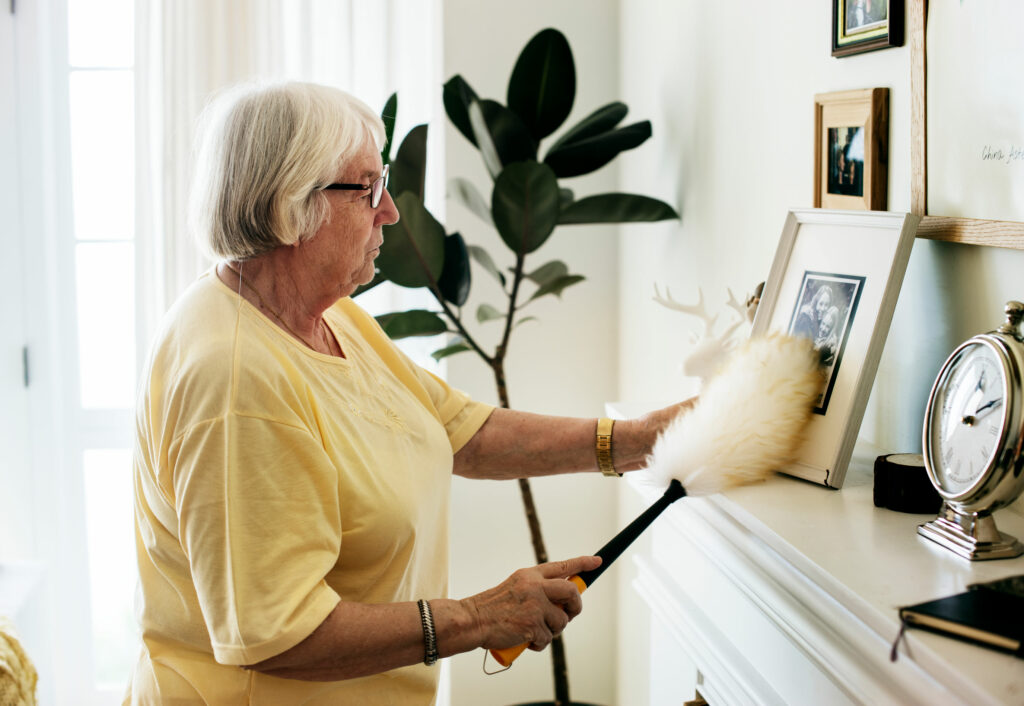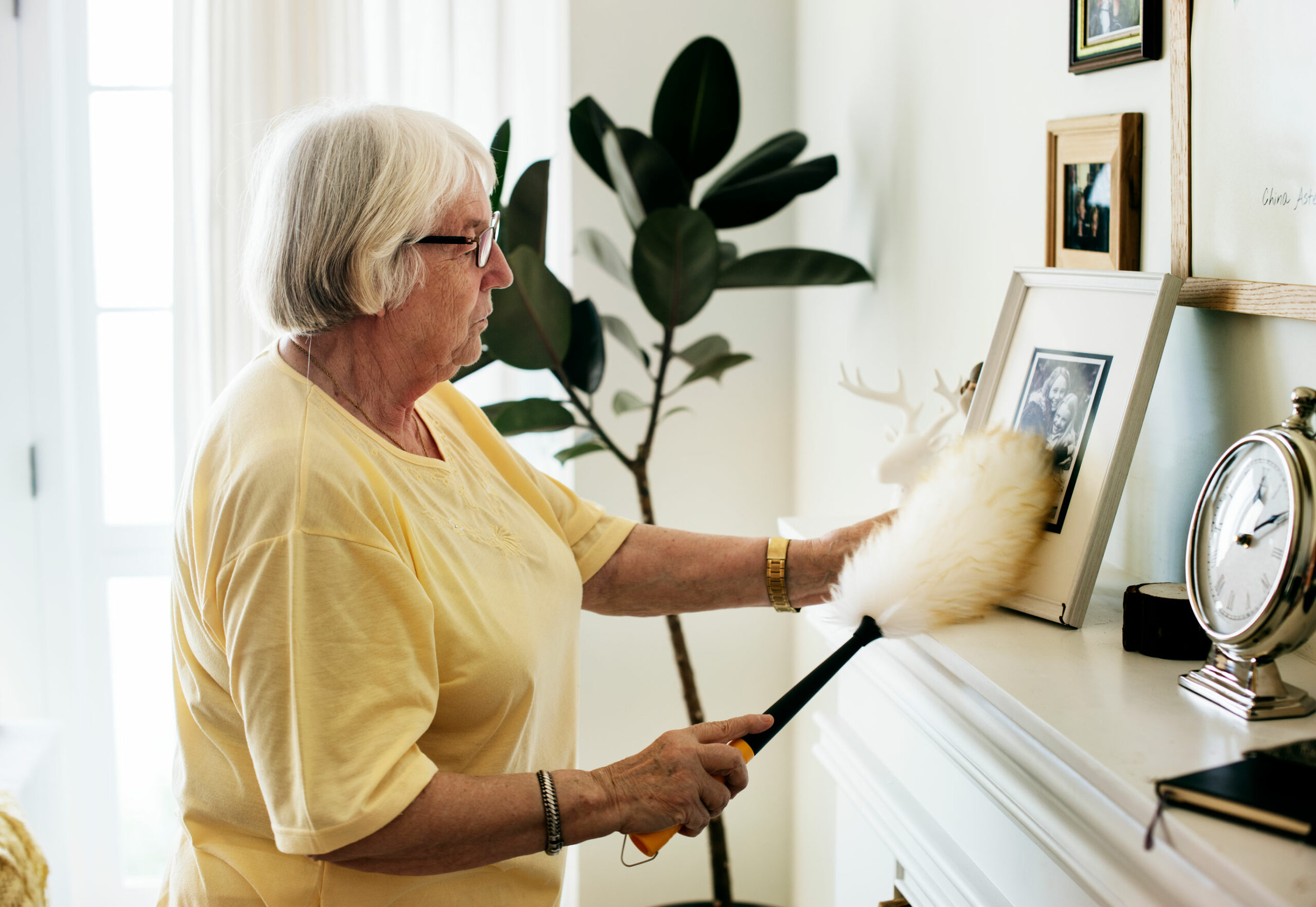Spring Cleaning Tips for Seniors and Their Caregivers
The birds are chirping, the buds are budding and spring is in the air! This is a popular time of year to do a little spring cleaning around your home, but for some, the tasks involved in sprucing up and organizing may be difficult or cumbersome.
In this blog, we take a look at how to make spring cleaning a bit easier and how caregivers can help their loved ones with their spring cleaning to-do list to ensure their home is a safe and happy place.
 Divide cleaning tasks into sections
Divide cleaning tasks into sections
It happens to all of us. Clutter, dust and grime can pile up, especially when we get busy or neglect the cleaning needs of our home for whatever reason. Looking at your laundry list of to-do items for the entire home can be overwhelming and stressful, but it doesn’t have to be.
Instead, break up the tasks into small sections and conquer those chores one room at a time. Spring cleaning does not have to be done all at once. Tackle each cleaning task that needs to be done in each room individually over a period of time so it doesn’t seem quite as daunting. Give yourself some grace to do things at a pace that works best for you.
Declutter your home
Make decluttering your home a priority when spring cleaning. Removing all the unnecessary clutter not only frees up space and decreases stress, it also reduces your risk of tripping and falling.
A helpful tip is to separate items into three categories: keep, donate or trash. For the items you decide to keep, be sure to store them in an organized fashion so the clutter stays out of your main space.
Organize your medicine cabinet
It’s easy for your medicine cabinet to start overflowing with medication you may no longer use or that is now expired.
The best way to safely dispose of unused or expired prescription or nonprescription medication is to drop it off at a medication take back location. If you do not have a take back location in your area, the FDA recommends checking their Flush List. Medicine on the FDA’s Flush List is either sought after for their misuse and/or abuse potential or can result in death if inappropriately taken. That is why the FDA recommends flushing that type of unused or expired medication if you do not have another way to dispose of it safely.
Once your medicine cabinet is organized, be sure to restock any essential items you may be missing.
Check smoke detectors and alarms
Something a lot of people forget to do is check to make sure their smoke detectors and alarms are working. Spring is a great time to do a yearly check to ensure everything is in working order.
To avoid climbing on a ladder or chair, ask a neighbor, friend or family member to help you do this yearly and important check.
Clean out the fridge and pantry
Remove any expired food in your refrigerator or pantry. Give these two storage areas a refresh by organizing the items inside by categories to make meal prepping easier and to help ensure food items don’t go to waste.
Change air filters and dust
Air quality plays a role in your overall health, which makes changing your air filters regularly a must. New filters catch dust, debris and keep your air conditioner running efficiently.
Dusting is also essential to improve your home’s air quality. Use an extendable duster to safely reach light fixtures, baseboards, fans and shelves where dust loves to accumulate.
Ask for help
Spring cleaning is no easy task and it is important to know your limits. Don’t be afraid to ask for help to complete tasks that may be challenging for you or put you at risk of an injury.
If you are a caregiver, be mindful of the above mentioned spring cleaning tasks that your loved one may need help with. If they are too afraid to ask for help, offer your assistance. Spring cleaning together is an opportunity to bond while lending a hand to tackle these important tasks. While visiting, take note of any other routine maintenance inside or outside that your loved one might need help with.
About Liberty HomeCare and Hospice Services
Liberty HomeCare and Hospice Services provides home health, hospice and palliative care across North Carolina, South Carolina and Virginia. To learn more about our services, request a free consultation by calling (800) 999-9883 or use our online form.

